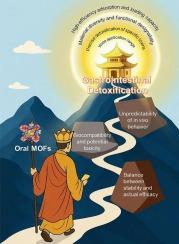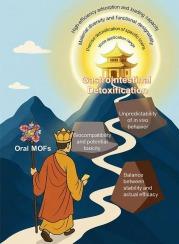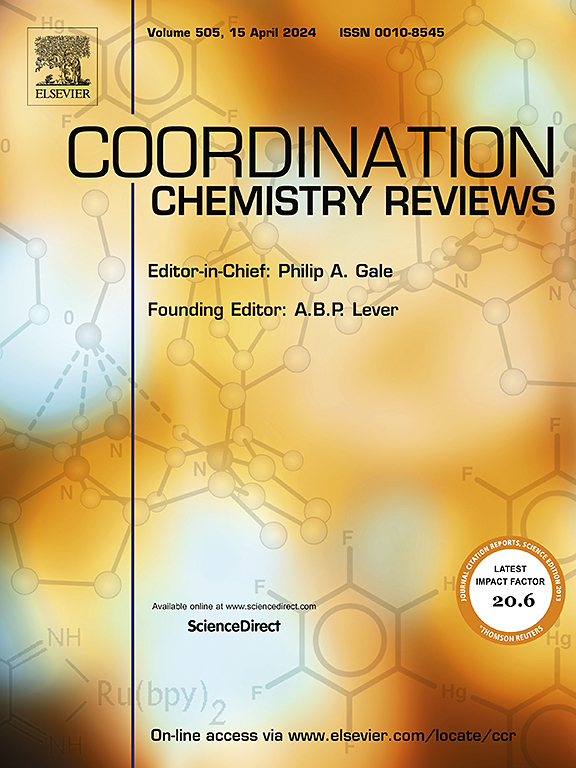口服MOFs的前景:重新定义胃肠道解毒策略
IF 23.5
1区 化学
Q1 CHEMISTRY, INORGANIC & NUCLEAR
引用次数: 0
摘要
口服毒素暴露中毒仍然是一个紧迫的全球卫生问题,目前的解毒策略往往受到效力和特异性差的限制。本文综述了胃肠道解毒的最新进展,强调了口服金属有机框架(MOFs)作为下一代治疗剂的出现。我们首先检查与MOF功能相关的胃肠道生理特征。然后,我们讨论了利用其高表面积、结构可调性和结合特异性,口服mof实现选择性毒素吸附和清除的机制。mof与肠道微生物群之间的协同相互作用被探索,特别是它们在增强解毒和恢复肠道稳态方面的潜力。此外,我们介绍了人工智能(AI)在指导MOF设计中的集成,实现了体内性能的预测建模。总之,这些见解表明口服mof是一个安全、有针对性和智能解毒的变革性平台,为未来的临床和紧急应用铺平了道路。本文章由计算机程序翻译,如有差异,请以英文原文为准。


The promising path of Oral MOFs: Redefining strategies for gastrointestinal detoxification
Poisoning from oral toxin exposure remains a pressing global health issue, with current detoxification strategies often limited by poor efficacy and specificity. This review highlights recent advances in gastrointestinal detoxification, emphasizing the emergence of oral metal–organic frameworks (MOFs) as next-generation therapeutic agents. We first examine the physiological characteristics of the gastrointestinal (GI) tract relevant to MOF functionality. Then, we discuss the mechanisms by which oral MOFs achieve selective toxin adsorption and clearance, leveraging their high surface area, structural tunability, and binding specificity. The synergistic interactions between MOFs and gut microbiota are explored, particularly their potential to enhance detoxification and restore intestinal homeostasis. Additionally, we introduce the integration of artificial intelligence (AI) in guiding MOF design, enabling predictive modeling of in vivo performance. Together, these insights showcase oral MOFs as a transformative platform for safe, targeted, and intelligent detoxification, paving the way for future clinical and emergency applications.
求助全文
通过发布文献求助,成功后即可免费获取论文全文。
去求助
来源期刊

Coordination Chemistry Reviews
化学-无机化学与核化学
CiteScore
34.30
自引率
5.30%
发文量
457
审稿时长
54 days
期刊介绍:
Coordination Chemistry Reviews offers rapid publication of review articles on current and significant topics in coordination chemistry, encompassing organometallic, supramolecular, theoretical, and bioinorganic chemistry. It also covers catalysis, materials chemistry, and metal-organic frameworks from a coordination chemistry perspective. Reviews summarize recent developments or discuss specific techniques, welcoming contributions from both established and emerging researchers.
The journal releases special issues on timely subjects, including those featuring contributions from specific regions or conferences. Occasional full-length book articles are also featured. Additionally, special volumes cover annual reviews of main group chemistry, transition metal group chemistry, and organometallic chemistry. These comprehensive reviews are vital resources for those engaged in coordination chemistry, further establishing Coordination Chemistry Reviews as a hub for insightful surveys in inorganic and physical inorganic chemistry.
 求助内容:
求助内容: 应助结果提醒方式:
应助结果提醒方式:


